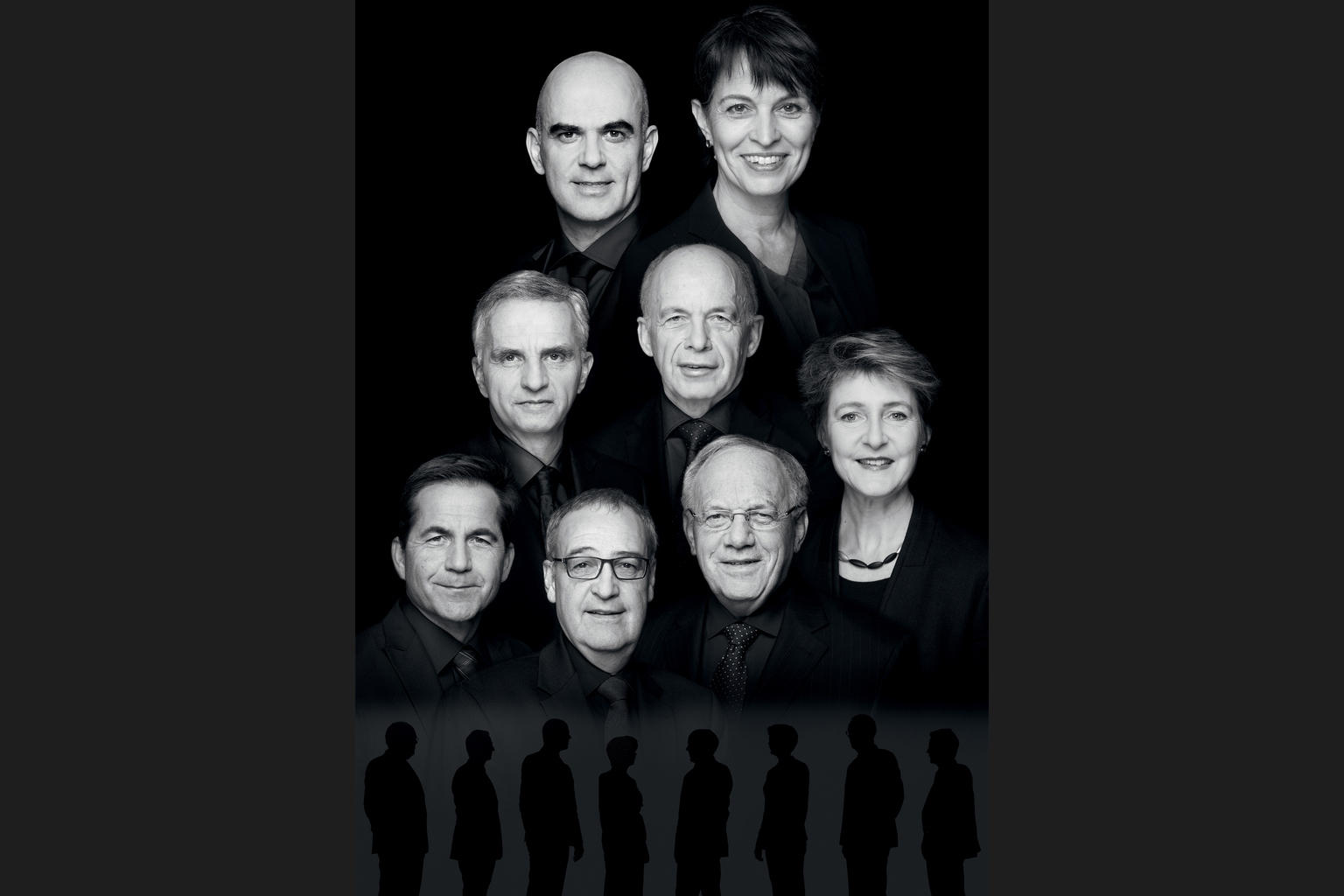How your life changes when you become a Swiss cabinet minister

It’s a 24-hour job that can take over your life. Karin Keller-Sutter and Viola Amherd will find out just how much when they join the seven-member Federal Council (government executive body) on January 1.
In 2019 they will become public figures and will no longer be able to walk the Swiss streets incognito.
Wherever they go, everyone will be watching. Coming in as the new heads of ministries – Amherd for defence and Keller-Sutter for justice – the two women will oversee hundreds of employees and will be responsible for taking decisions right from the start. This challenge is on top of the overwhelming amount of new information to digest on rights and duties, dossiers, decision-making processes, administration and security measures.
Meanwhile, in their public speeches, hundreds of journalists will be weighing up every word they utter. And in private – or what is left of their lives outside work – they will become familiar faces on the Swiss streets.
“Government ministers are very public people. But in our country, it is not unusual for them to continue to take a tram or to walk across Bern to have a coffee, like Pascal Couchepin [federal councilor from 1998 to 2009],” says Stefan Nünlist, who was a staff member for Couchepin and former Federal Councillor Jean-Pascal Delamuraz (1983-1998).
“Typically Swiss”
In public, people will not just stop and stare, but they will also want to shake their hands and share a few words.
“Delamuraz and Couchepin didn’t mind that at all. On the contrary, they were very pleased with such contacts. It was perhaps one of their reasons for taking office,” Nünlist says.
“Most people are happy to meet a member of the government. There is still a lot of respect for the council and its ministers. That’s typically Swiss.”
Amherd, from canton Valais, and Keller-Sutter, from St Gallen, are likely to move to Bern or to at least take a secondary residence near the capital. Work days generally begin at 7am and end around 10-11pm.
Like their colleagues, the new ministers will be entitled to a car with a driver for official activities, and another for their private use. They are free to choose the car brand and model, but it should not cost more than CHF100,000. A cabinet minister also has the right to a fixed telephone line in their own home and a mobile phone.
Don’t put your foot in it
The new arrivals will be assisted by an army of staff to prevent them from making mistakes. But sooner or later, jokes will start circulating about them, like they did for Keller-Sutter’s predecessor, Johann Schneider-Ammann, who became a viral hit with his video, sombrely urging citizens to laugh to improve their health.

More
Schneider-Ammann will leave the Federal Council
“Clearly, his personal staff didn’t realise the funny side of the video, otherwise they wouldn’t have authorised it,” says Nünlist. “He even managed to attract [former US President Barack] Obama’s attention.” The fact that Schneider-Ammann managed to laugh off the whole episode suggests the former economics minister possessed one of the essential skills for anyone holding an influential position: the ability to not take himself too seriously.
Able to take criticism
A day won’t go by without Amherd and Keller-Sutter appearing in the media. They will have to turn a blind eye to criticism. And they won’t have anyone to teach them how to do it.
Council members never appear to lose their temper – or at least Nünlist doesn’t remember any such cases. “The authorities have a great deal of political experience in our country. They know how to evaluate attacks and they know how to distinguish between personal and factual criticism,” he noted.

More
The Swiss government seen in a different perspective
Adapted from German

In compliance with the JTI standards
More: SWI swissinfo.ch certified by the Journalism Trust Initiative



You can find an overview of ongoing debates with our journalists here. Please join us!
If you want to start a conversation about a topic raised in this article or want to report factual errors, email us at english@swissinfo.ch.